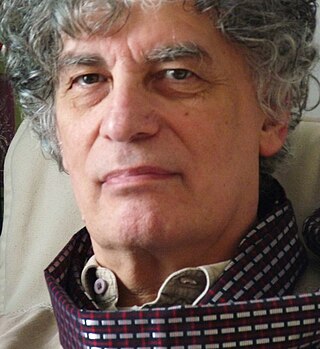In linguistics, morphology is the study of words, how they are formed, and their relationship to other words in the same language. It analyzes the structure of words and parts of words such as stems, root words, prefixes, and suffixes. Morphology also looks at parts of speech, intonation and stress, and the ways context can change a word's pronunciation and meaning. Morphology differs from morphological typology, which is the classification of languages based on their use of words, and lexicology, which is the study of words and how they make up a language's vocabulary.
Corpus linguistics is the study of a language as that language is expressed in its text corpus, its body of "real world" text. Corpus linguistics proposes that a reliable analysis of a language is more feasible with corpora collected in the field—the natural context ("realia") of that language—with minimal experimental interference.
In linguistics, productivity is the degree to which speakers of a language use a particular grammatical process, especially in word formation. It compares grammatical processes that are in frequent use to less frequently used ones that tend towards lexicalization. Generally the test of productivity concerns identifying which grammatical forms would be used in the coining of new words: these will tend to only be converted to other forms using productive processes.

A word is a basic element of language that carries an objective or practical meaning, can be used on its own, and is uninterruptible. Despite the fact that language speakers often have an intuitive grasp of what a word is, there is no consensus among linguists on its definition and numerous attempts to find specific criteria of the concept remain controversial. Different standards have been proposed, depending on the theoretical background and descriptive context; these do not converge on a single definition. Some specific definitions of the term "word" are employed to convey its different meanings at different levels of description, for example based on phonological, grammatical or orthographic basis. Others suggest that the concept is simply a convention used in everyday situations.
Heinz Joachim Giegerich is a Scottish linguist of German nationality, and Emeritus Professor of English Linguistics in the School of Philosophy, Psychology and Language Science of the University of Edinburgh, Scotland.
In linguistics, clipping, also called truncation or shortening, is word formation by removing some segments of an existing word to create a synonym. Clipping differs from abbreviation, which is based on a shortening of the written, rather than the spoken, form of an existing word or phrase. Clipping is also different from back-formation, which proceeds by (pseudo-)morpheme rather than segment, and where the new word may differ in sense and word class from its source.
In linguistics, word formation is an ambiguous term that can refer to either:
The Izonlanguages, otherwise known as the Ịjọ languages, are the languages spoken by the Izon people in southern Nigeria.

The Cambridge Grammar of the English Language (CGEL) is a descriptive grammar of the English language. Its primary authors are Rodney Huddleston and Geoffrey K. Pullum. Huddleston was the only author to work on every chapter. It was published by Cambridge University Press in 2002 and has been cited more than 7,000 times.
Rochelle Lieber is an American Professor of Linguistics at the University of New Hampshire. She is a linguist known for her work in morphology, the syntax-morphology interface, and morphology and lexical semantics.
István Kecskés is a Distinguished Professor of the State University of New York, USA. He teaches graduate courses in pragmatics, second language acquisition and bilingualism at SUNY, Albany. He is the President of the American Pragmatics Association (AMPRA) and the CASLAR Association. He is the founder and co-director of the Barcelona Summer School on Bi- and Multilingualism, and the founder and co-director of Sorbonne, Paris – SUNY, Albany Graduate Student Symposium (present).
Norbert Schmitt is an American applied linguist and Emeritus Professor of Applied Linguistics at the University of Nottingham in the United Kingdom. He is known for his work on second-language vocabulary acquisition and second-language vocabulary teaching. He has published numerous books and papers on vocabulary acquisition.
Betty J. Birner is an American linguist. Her research focuses on pragmatics and discourse analysis, particularly the identification of the types of contexts appropriate for sentences with marked word order.
Raymond Hickey is an Irish linguist specialising in the English language in Ireland, especially in the capital Dublin, working within the sociolinguistic paradigm of language variation and change. Hickey has also worked on the Irish language, specifically the phonology of the modern language. For both Irish and English in Ireland he has carried out extensive fieldwork for over three decades.
Laurence James Bauer is a British linguist and Emeritus Professor of Linguistics at Victoria University of Wellington. He is known for his expertise on morphology and word formation. Bauer was an editor of the journal Word Structure. In 2017 he was awarded the Royal Society of New Zealand's Humanities medal.
Morphological Productivity is a 2001 book by Laurie Bauer explaining productivity in English words.

István Kenesei is a Hungarian linguist, professor emeritus and corresponding member of the Hungarian Academy of Sciences. His research focuses on generative grammar, theoretical linguistics and foundational problems of syntax, semantics and morphology. He works both in Hungary and around the world, and has published in English and Hungarian.
Henk van Riemsdijk is a Dutch linguist and professor emeritus at Tilburg University.
Elizabeth Couper-Kuhlen is an American linguist and distinguished professor (emeritus) from the University of Helsinki.



